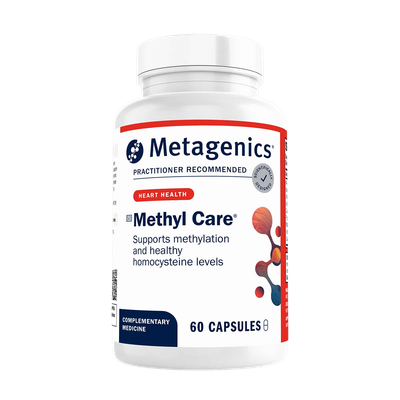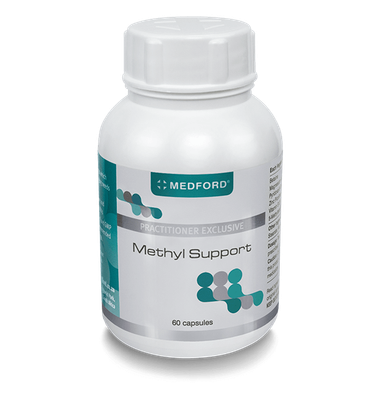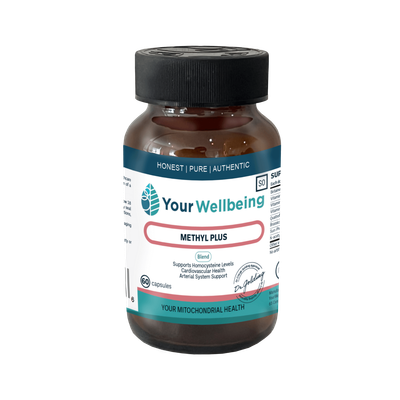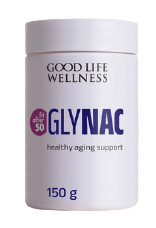Methylation
Methylation is a process whereby DNA is repaired; neurotransmitters are produced and plays an important role in detoxification and healthy inflammatory processes. The process of methylation can be tested by a healthcare provider by testing an person's Homocysteine level.
Homocysteine is a sulphur containing amino acid that is synthesized by the body rather than ingested via diet. It is created from a process called demethylation of another amino acid, methionine and can be recycled back into methionine (a benign amino acid) or converted into cysteine (a benign amino acid with antioxidant properties) in the presence of adequate B-vitamins.
High homocysteine levels are linked to such vascular disorders as heart disease, stroke and peripheral artery disease as well as dementia and Alzheimer’s disease. Specifically, elevated homocysteine is associated with thrombosis (blood clots) causing a 2-3 fold increase in risk of cardiovascular events. It is considered as strong of an indicator of vascular disease as smoking or hypertension. Evidence also suggests a link between elevated homocysteine and migraines, shortened telomeres (a marker for aging) and even age- related hearing loss.
Several studies show that increased levels of homocysteine can cause different systemic and neurological diseases. High homocysteine levels are considered as an independent risk factor for several cardiovascular diseases due to physical damage to arteries. Additionally, recent studies show that increased homocysteine levels can cause neurodegenerative diseases (including Alzheimer’s disease, Parkinson’s disease, and dementia), diabetes, Down syndrome, and megaloblastic anemia. Lastly increased homocysteine levels are also associated with different types of cancer (pancreatic, breast, colorectal, cervical etc.) and homocysteine has been proposed as possible tumor biomarker for these cancers. High homocysteine can also stem from renal disease since homocysteine is partially cleared through the kidneys. Patients with kidney disease often have very high levels of homocysteine. It is very important to have normal homocysteine levels and metabolisms to have beneficial physiological effects.
How is homocysteine treated?
In many cases, high levels of homocysteine can be lowered by low-cost, non-invasive therapy with little side effects. Correcting a deficiency in folate, vitamin B6 or vitamin B12 can reduce homocysteine levels significantly. Each of these vitamins is necessary for the proper conversion of homocysteine into methionine and a deficiency in any one of them can cause homocysteine levels to rise. Similarly, supplementation with the amino acid betaine or cysteine may lower homocysteine levels, especially in the absence of B vitamin deficiencies. Other modifiable contributors to elevated homocysteine include smoking and high meat diets.





